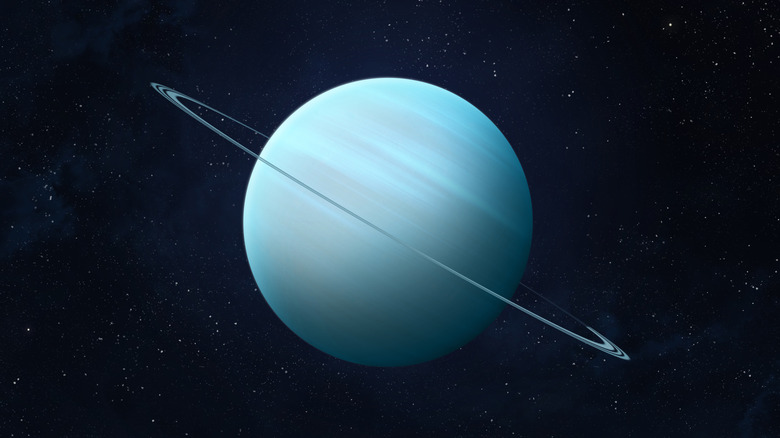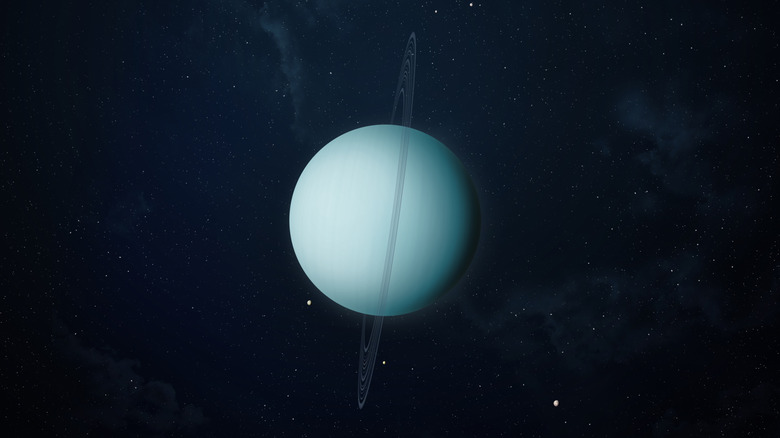Uranus Is Far Hotter Than We Thought, Scientists Find
Since its categorization as a planet in the 18th century, Uranus has been an astounding target of observation for scientists. Once thought to only be a distant star, the planet has continued to amaze scientists well into the most recent decades. The planet, which is unique because of how it spins on its side, is also considered a twin of Neptune, the other "blue" planet found in our solar system.
However, despite their similarities, Uranus continues to defy everything that we thought we understood about it, including just how hot it is. For decades now, since Voyager 2 flew past the sideways planet, researchers have believed that Uranus does not generate its own heat. While many have questioned this theory, they've never been able to figure out why they can't detect any heat from the planet.
But, according to a new study, Uranus is much hotter than we previously believed it to be. This discovery could challenge everything we thought we knew about the planet, spurring even more calls for exploration of our solar system's outer planets.
The cold case of Uranus
All of the data and theories we have about just how hot Uranus is have been based on that single data point captured by Voyager 2. However, when creating a new model that looked at all the data of Uranus' heat signature — including the haze clouds and heat distribution from all sides of the planet — researchers found a much more intriguing story.
Previously, researchers had noted that Uranus only gave off as much heat as it received from the Sun. This seemed to indicate that the planet doesn't create heat internally like the other planets in our solar system. But that might not be the case at all. To get a full picture of how much heat Uranus distributes, researchers from NASA and Oxford put together an entirely new model that builds off years of data captured about the planet. Using this, they discovered that the planet gives off 15% more heat than it receives from the Sun, suggesting that there is some type of internal heat creation happening.
This goes against many theories which suggested that Uranus was perhaps older, and thus colder, than other planets. Some even assumed it was dead, while others hypothesized that the same object believed to have collided with Uranus and knocked it on its side could have knocked all of the heat off the planet. But none of those hypotheses satisfied scientists. This new discovery could, though, and if proven correct, it could completely change everything we thought we knew about Uranus, giving scientists even more reason to want to probe Uranus than ever before.

